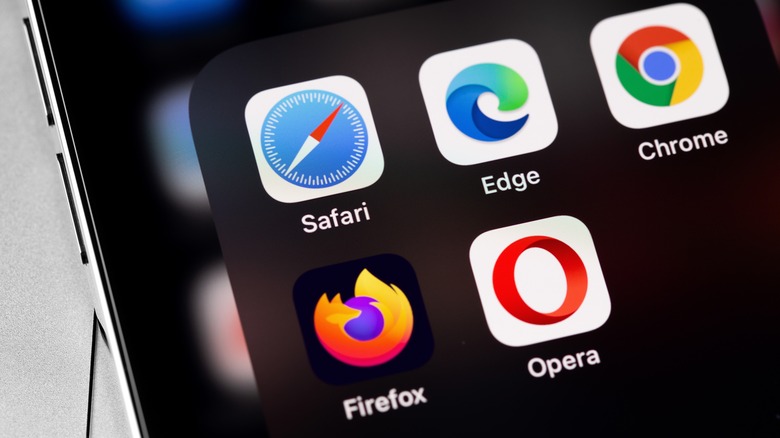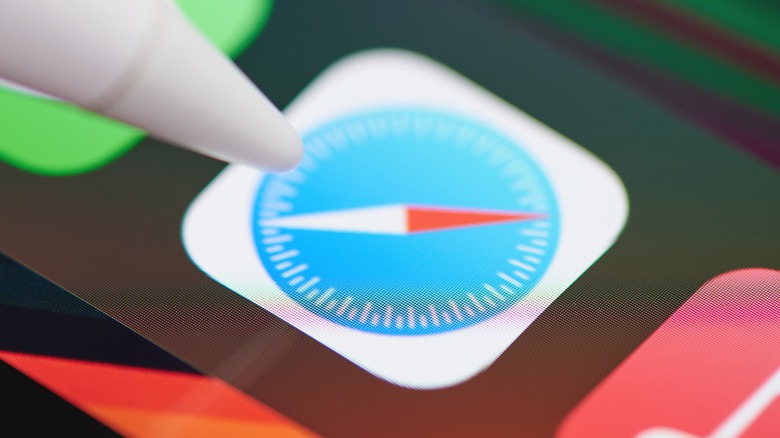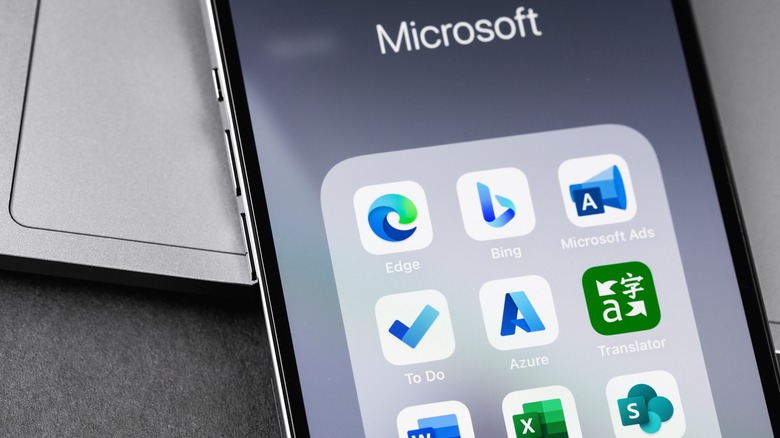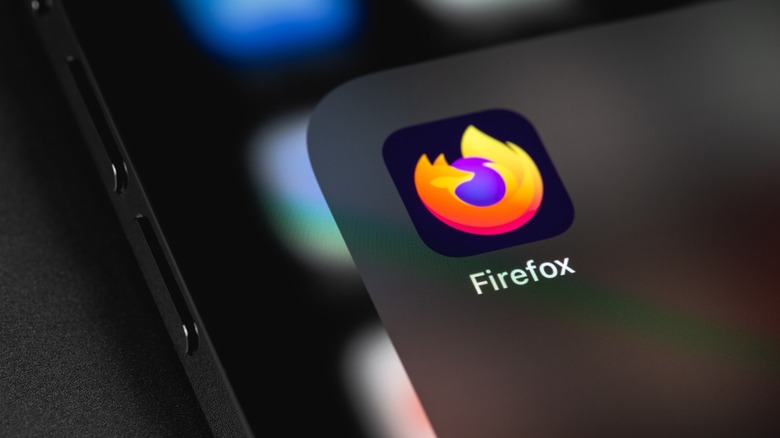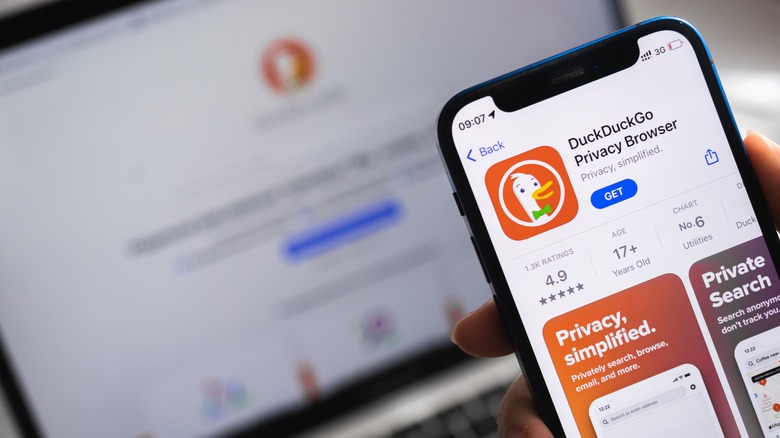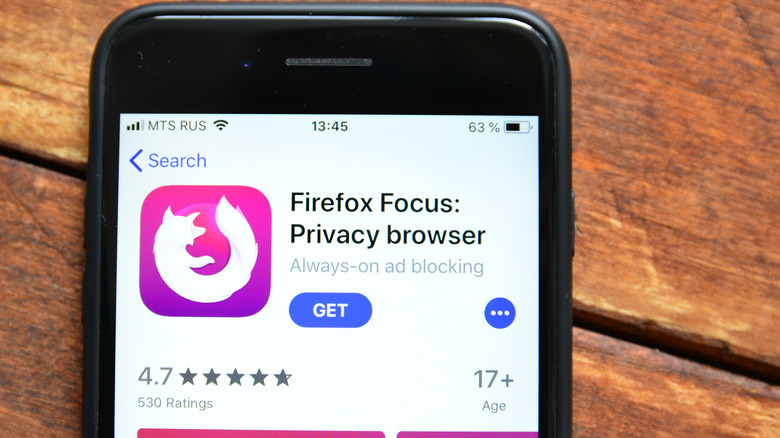The 10 Best iPhone Web Browser Apps (And Which Is Best For You)
Although apps are widely available for a plethora of popular websites, the web browser remains one of the most useful and far-reaching tools available on a smartphone. Be it for a quick search to settle an argument, reading through the news, or paying bills, the web browser in your pocket has a lot of uses.
However, with the plethora of apps already available on iOS comes a plethora of internet browsers. Simply searching "browser" on the app store returns a dizzying amount of applications that all advertise different features and use cases, and it can be hard to tell if there's a better option than whatever you're currently using. Sometimes, all you want is to know you can browse without being tracked too heavily, but others may just want to be able to type in an address and know without a doubt that their browser will pull up the website. If you're wondering if another browser is better for you, here are ten of the best web browsers on iOS, and which is best for you based on your wants and needs.
Safari
In the way that so many desktop browsers are based on Chromium, all iOS browsers are based on Safari. Although that may soon change, is it such a bad thing to reject the extra layers offered by other apps and return to Apple's curated experience? No, the app has come a long way in terms of usability. With the updated UI that came with iOS 15 in 2021, the default browsing experience of iOS provides a simple interface that just clicks with the rest of the iPhone experience. The swipe-based UI goes a long way toward distinguishing Safari from the rest of the taskbar-based browsing experiences available on iOS. This also comes alongside the seamless connectivity the browser comes with for users that also own other Apple devices using Safari.
However, it is very lacking in the feature department. Some tried and true features available on other iOS browsers simply are not present. But that doesn't mean its exclusive features don't pack a punch, with the use of iCloud tabs, Siri Suggestions, and a hub for shared links proving to be useful in a way other browsers can't truly compete with on iOS.
If you're especially plugged into the Apple ecosystem, owning an iPad or Mac Book in addition to an iPhone, Safari can also present a seamless transition between devices.
Google Chrome
It's no secret that Google Chrome is the most widely used web browser, and chances are you use it or a different Chromium-based browser. Chrome on iOS offers the opportunity to stay in perfect sync with your desktop browsing habits while carrying over your history and logins. While most browsers already have that going for them, Chrome has the biggest edge of almost every website under the sun being compatible with Chrome. While not exactly feature-rich, sometimes that doesn't matter when your browser just works.
That's also not to say that Chrome doesn't offer anything feature-wise. Short of Safari, the built-in password manager is the most intuitive of any web browser on iOS with a quick menu to access and modify saved passwords. The UI is also one of the cleanest of the many taskbar-based browsers on iOS, with just a simple look and easily navigated menus.
For users seeking compatibility and the path of least resistance, Google Chrome is the definitive pick.
Opera
Although Safari has seamless navigation within iOS locked down, Opera by and far has the most unique UI in the field. Opera has the option for a standard navigation bar at the bottom of the screen, but when opening the app for the first time, users are also greeted with the option to use the fast action button. The fast action button condenses every piece of the usual taskbar into one quick and easy button. The commands from the fast action button are all based on pressing, holding, and swiping. The fast action button streamlines the entire application towards being usable with only one hand at any given moment.
Additionally, Opera's interactivity with its desktop counterpart functions nicely through Opera's "Flow" feature. The feature allows users to send text and attachments between their mobile and desktop browsers, while also bundling in synced browsing data. On top of it all, Opera has one of the best built-in ad-blockers on a mobile browser and a free VPN to boot. There is also a mobile version of Opera GX available for iOS, which just adds in the GX corner from the desktop version of Opera GX. The unique UI combined with Opera's fantastic ad-blocking and sync features make this browser a true standout on iOS.
This browser is best for users seeking a unique browsing experience on iOS, and users that already use Opera on their desktop.
Brave
There are tons of privacy-focused browsers you can download for iOS. From DuckDuckGo to Ghostery, there's no shortage of browsers that are built with privacy in mind. But, what Brave has on the pack is features. Brave features a built-in Crypto Wallet, an Encrypted Video Calling function, and most useful of all, a playlist feature. Users of Brave can save videos to a playlist for offline play that continues to function with the screen locked, and yes, this includes videos from YouTube. There's also Brave Rewards, which allows users to collect Basic Attention Tokens for ads seen in Brave, that are less invasive and tracking than the ads blocked by the browser.
Privacy-wise, Brave isn't shy with its homepage informing users of the numbers attached to the privacy functions. The browser will inform users of the number of trackers and ads blocked, the amount of data saved by this, and best of all the amount of time it has saved you. This also comes alongside the lack of a need to sign in to take advantage of all of the features available on the app. The adblocker is very robust — and on par with the adblocker built into Opera. As UI goes, Brave gives a more desktop feel with an always visible row of tabs seated just below the address bar, in addition to the usual taskbar at the bottom of the screen.
Brave is best for privacy-oriented users, and users seeking to make use of the robust features packed into the app.
Microsoft Edge
Microsoft Edge's reputation has always been a little sticky due to its association with Internet Explorer, but since Microsoft updated the browser to a Chromium base in 2018, it's been a very solid browsing choice. The iOS equivalent is also a very good choice. As UI goes the experience is fairly standard with a couple of nice touches sprinkled in, like a ".com" and "/" button when typing in the address bar.
Edge also offers a robust, and easy-to-navigate UI. While the UI is mostly the same old taskbar for the most part, its presentation of options within the mostly standard set-up stand out in a field of mostly the same thing. It's nowhere near as unique as something like Opera, but it handles very well. When paired with its desktop counterpart, Edge on iOS can be a great choice for browsing.
This browser is best for users that seek a simple feature set and those that already use Microsoft Edge on a desktop.
Firefox
Firefox is a veteran internet browser, both on mobile and on desktop. The iOS version of the browser offers a simple and elegant user experience. Although it seems to be the usual UI for any of these apps at the outset, Firefox allows for a great deal of user customization to make the app a little more personal. The customization features combine with the simple syncing with a desktop counterpart to form an easy-going browsing experience.
Many of the features within Firefox are nice, if not done better elsewhere. While customization can mask the bog-standard UI of the browser, it can't hide the menus that hold up as clunky when compared with its peers.
Firefox on iOS is best for users seeking a decently customizable browsing experience and compatibility with Firefox on their desktop machine.
Ecosia
Ecosia is most well-known as an alternative search engine, but there is a mobile browser too. On the technical side, Ecosia isn't the most impressive browser iOS has to offer. The ad-blocking functionality leaves something to be desired, and it more or less packs the same standard UI as almost every mobile web browser. It does come with functionality to force dark mode on websites, which does work very well most of the time. Other than that, the features and UI on Ecosia are pretty standard alongside the other iOS browsers.
However, the value of using Ecosia lies in the values embodied by the browser more so than the features and unique user experience. The ad revenue generated by users of Ecosia goes towards planting trees, creating a "carbon neutral" browsing experience. The non-profit behind Ecosia also offers transparency in its finances, as it publishes a financial report that's tracked monthly.
For users that value environmental values and transparency above certain features, Ecosia is a standout in the field.
DuckDuckGo
Much like Ecosia, DuckDuckGo is perhaps more widely known for being an alternative search engine, though there is a beta of the privacy-based browser on Mac and Windows. Where Ecosia's focus is on harnessing ad money for the environment, DuckDuckGo's focus is more so on user privacy. This carries into the mobile browsing app but with a couple of unique spins. The biggest is a flame button in the middle of the app's taskbar. When pressed, the button wipes all browsing history and site data with a flash (and customizable) animation. Its big distinguishing privacy factor is the ability to "Fireproof" certain sites so that they are left untouched whenever you choose to wipe your data.
Outside of the additional privacy features offered by DuckDuckGo, there isn't a whole lot to distinguish the browser from many of its peers. The UI comes down to the basic taskbar shared by most browsers but is still simple and easy to use for that very reason.
For users seeking a simple, privacy-oriented browser and the ability to quickly wipe their data, DuckDuckGo is the way to go.
Firefox Focus
Firefox Focus is a one-tab, ad-blocking browser that is a solid choice if you're liable to get distracted while making a simple web search. Firefox Focus cuts out all possible distractions by keeping one tab only, blocking ads, and flushing all history down the drain when you close the app. However, given the small use case for this browser, it's probably not a solid choice unless you really need that layer of forced focus in place.
Firefox Focus is easily recommendable as a secondary browser that can be used for quick searches, or browsing sessions that aren't going to require multiple tabs. It's especially easy to recommend for its functionality in the realm of privacy, with the lack of any browsing data being saved at all.
Firefox Focus is best for those that are very easily distracted, in need of a secondary browser, or seeking a deeper sense of privacy.
Onion Browser
There are a ton of Tor-based mobile browsers. The results found on the app store can be almost as overwhelming as just searching for a browser in general. What gives Onion Browser the edge is a pleasant enough UI and ease of use. The app's main advantage is the more robust privacy offered with the use of Orbot. The Tor network relays your traffic through a huge network of volunteers which makes it nearly impossible for your traffic to be tracked in any meaningful way.
Much like Firefox Focus, Onion Browser can function well as a secondary browser, with the browser having built-in options to open any given link in your primary browser. Onion Browser, by its own nature, lacks a few quality-of-life features that would otherwise interfere with the kind of concrete privacy sought in a Tor-based browser. Those features can be found in a second browser that could be loaded alongside Onion Browser for specific tasks.
Onion Browser is the best option for users seeking a privacy-oriented, Tor-based mobile browser.
